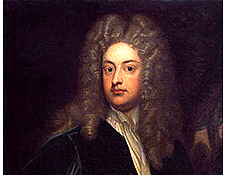 Hello there! 😀
Hello there! 😀
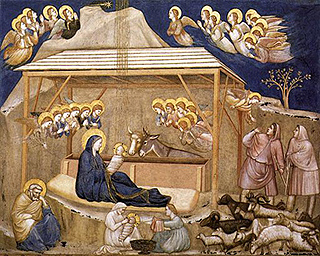
It's a moving story, even for atheists like me. The baby in the manger, in the stable, has served as a gentle symbol of humility, simplicity, innocence and vulnerability for over two millennia. If you'll pardon the pun, the nativity has been stable, unchanging, a constant reminder of the central teachings of the Bible.
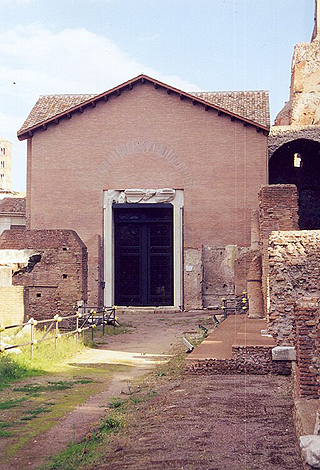
But another largely stable dimension of Christianity has been the ever-spiralling wealth of the Church, most notably the Roman Catholic Church.
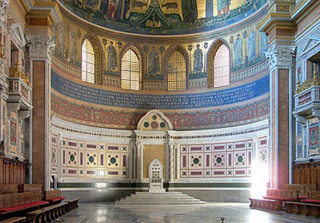
The Holy See, which dates back to early Christianity, is the governing body of the entire Catholic Church. It represents the spiritual leadership and authority of the Pope, who is considered the spiritual successor to Saint Peter. Vatican City is the physical territory over which the Holy See has sovereignty, making it the smallest independent state in the world.
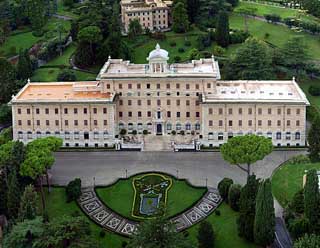
Palace of the Governate, Vatican City State, opulent home of the Pontifical Commission of the Vatican City State
Beyond its administrative and diplomatic roles, the Holy See is a moral and religious authority, guiding Catholics worldwide in matters of faith, morality and ethics. The Holy See's influence extends far beyond the borders of Vatican City, with its immensely valuable treasures and buildings, impacting Catholics and non-Catholics around the world through its teachings, decisions and diplomatic activities.
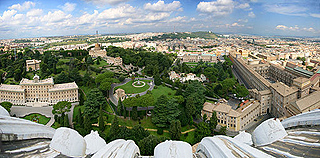
View of the Vatican Gardens and Museum
Clearly the enormous wealth of the Church controlled by the Vatican stands in stark contrast to that simple scene of an innocent baby, in a manger, in a stable. It seems more than odd (to me) that that small agricultural building should have inspired the construction of such a vast and wealthy estate as The Vatican and Vatican City. What's more, in a further contrast, the pure innocence of that nativity scene jars against the history of a Roman Catholic Church which has on many occasions been infested with corrupt, often criminal individuals and systems. Financial and sexual scandals have dogged this property-based enterprise, which, in consequence perhaps of its elaborate administrative structures, has often seemed to be allowed to exercise limp self-regulation and immunity from outside investigation. As a barrel, it has had far more than its fair share of rotten apples.
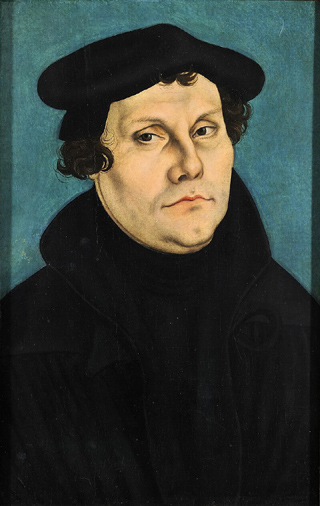
Martin Luther, by Lucas Cranach the Elder (1472-1553)
Luther strongly criticised the Church's practice of selling indulgences, for instance, which were said to reduce punishment for sins. He argued that forgiveness was a matter of God's grace, not something that could be bought by the wealthy. He emphasised that salvation comes through faith alone, not through good works or monetary contributions. This was in direct opposition to the Church's teachings that good deeds and contributions could influence one's salvation. He also asserted that the Bible, not the Church hierarchy, was the ultimate authority in matters of Christian faith and practice, challenging the prevailing view that the Pope and Church traditions were the highest authority.
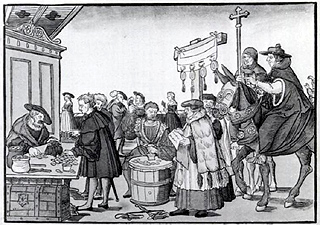
The sale of indulgences shown in A Question to a Mintmaker, woodcut by Joörg Breu the Elder of Augsburg, ca. 1530
Money-making, by whatever means, has been one of the primary foci of the Church throughout its existence. And over the past fifty years, the Vatican has been directly or indirectly implicated in a litany of financial and other scandals, reflecting massive failings in its administration and governance.
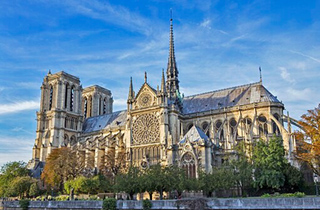
Notre Dame de Paris
When considering abuse by other Church workers, the estimated number of child victims rises to around 330,000. Note that this refers only to France and only to a seventy year period. This comprehensive investigation was led by Jean-Marc Sauvé, a senior civil servant.
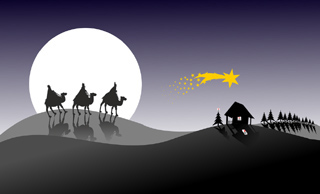
In the aftermath of the report, there was a public outcry in Ireland and a demand for justice for the victims. The government issued a formal apology and set up a compensation scheme for survivors. The report has had a lasting impact on Irish society, prompting a re-evaluation of the role of the Church in Ireland, a "catastrophic" effect on Catholicism in the country, leading to significant changes in child protection policies.
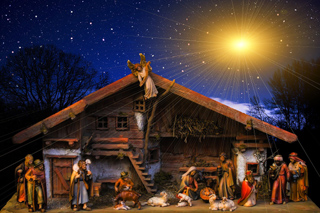
In the US, the John Jay Report, published in 2004, formally titled The Nature and Scope of the Problem of Sexual Abuse of Minors by Catholic Priests and Deacons in the United States, was a comprehensive study conducted by the John Jay College of Criminal Justice. It was commissioned by the U.S. Conference of Catholic Bishops and based on surveys completed by Roman Catholic dioceses in the United States. The report identified 11,000 allegations of abuse, with 6,700 substantiated. A significant number of allegations couldn't be investigated because the accused priest had died. The study found that the abuse ranged from verbal harassment to penile penetration, with most abusers engaging in multiple types of abuses. The most frequent context for abuse was social events, and many priests socialised with the families of victims. Abuse occurred in various locations, predominantly in the residence of the priest. The report found that 81% of the victims were male, with a significant portion of them aged between 11 and 14 years.
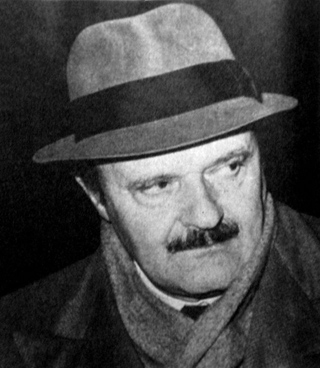
The Vatican Bank has been plagued by scandal since its foundation in June 1942.
In 2012, Paolo Gabriele, Pope Benedict XVI's butler, leaked confidential documents to the media. These documents revealed internal corruption, power struggles, and financial mismanagement within the Vatican. This scandal became known as
There have been various allegations of financial irregularities and mismanagement involving different Vatican departments and investments over the years, leading to ongoing efforts at financial reform and transparency under recent Popes.
In July 2021, the Vatican appellate court upheld the sentences against Angelo Caloia, former president of the Vatican bank (Institute for the Works of Religion) from 1999 to 2009, and his lawyer Gabriele Liuzzo. They were found guilty of money laundering and embezzlement, involving millions of euros from sales of Vatican properties. Originally sentenced to eight years and six months in prison, their terms were reduced by five months after dropping two charges due to insufficient evidence and statute limitations.
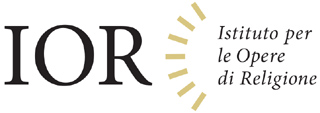
Both Caloia and Liuzzo were ordered to pay a fine of 12,500 euros each and return millions of euros frozen in their accounts at the investigation's start. Additionally, Lamberto Liuzzo, Gabriele's son, also found guilty in the scheme, received a sentence of five years and two months in prison and a fine of 8,000 euros. All three were banned for life from holding public office at the Vatican.
The case, announced in late 2014, involved the sale of twenty-nine Vatican-owned buildings in Rome and Milan from 2001 to 2008. Another key figure in the case, Lelio Scaletti, the former director general of the bank, had died. Approximately 17 million euros in their Vatican bank accounts were frozen during the investigation, with an additional 10 million euros frozen in Switzerland on Vatican's request. The enforcement of the sentences falls to the Vatican prosecutor's office, with the caveat that Vatican police cannot arrest or detain suspects in Italy without an extradition process.
As mentioned earlier, the Vatican faced a scandal involving a controversial investment in luxury real estate in London, in the present decade, leading to the loss of millions of euros of Church funds, allegations of financial mismanagement and the resignation and trial of several officials.
These scandals have elicited various responses from the organisation, including efforts at reform, legal proceedings against those involved and public apologies. They have also led to broader discussions about governance, accountability and transparency within both the Vatican and the wider Catholic Church.
And of course these various financial and sexual scandals are absolutely nothing new. Back in 1531, our friend Martin Luther noted that
So, when considering the nativity - either as a believer or, like me, an atheist - why not think also about the countless, desperate human tragedies and gross criminal activities that have been key by-products of this "holy" enterprise?
"Judge not, that ye be not judged.
For with what judgment ye judge, ye shall be judged: and with what measure ye mete, it shall be measured to you again.
And why beholdest thou the mote that is in thy brother's eye, but considerest not the beam that is in thine own eye?
Or how wilt thou say to thy brother, Let me pull out the mote out of thine eye; and, behold, a beam is in thine own eye?
Thou hypocrite, first cast out the beam out of thine own eye; and then shalt thou see clearly to cast out the mote out of thy brother's eye."
Matthew 7, verses 1-5
The Bible, King James' version.
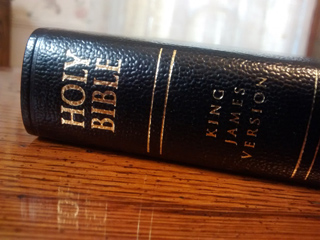
Notes
1 Derek Wilson (2007). Out of the Storm: The Life and Legacy of Martin Luther. London: Hutchinson. ISBN978-0-09-180001-7.; This allegation was made in the pamphlet Warnunge D. Martini Luther/ An seine lieben Deudschen, Wittenberg, 1531. Quoted in Wikipedia.
Credits/attributions
Santa Maria Antiqua, in the Forum Romanum, 5th century, seat of Pope John VII: Chris Nyborg, CC BY-SA 3.0 http://creativecommons.org/licenses/by-sa/3.0/, via Wikimedia Commons
Holy See: Ern, CC BY-SA 2.0 https://creativecommons.org/licenses/by-sa/2.0, via Wikimedia Commons
Indulgences: Pvasiliadis, Public domain, via Wikimedia Commons
Vatican City, Garden and Museums: Stefan Bauer, http://www.ferras.at, CC BY-SA 2.5 https://creativecommons.org/licenses/by-sa/2.5, via Wikimedia Commons
Palace of the Governate: Staselnik, CC BY-SA 3.0 https://creativecommons.org/licenses/by-sa/3.0, via Wikimedia Commons
Notre Dame Cathedral: Ali Sabbagh, CC0, via Wikimedia Commons
E.&O.E.
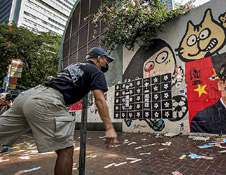
On the face of it, two recent moves by the Chinese government appear to be aimed at promoting greater freedom and opportunity for its citizens.
Where the arts meet psychology - making sense of synaesthesia
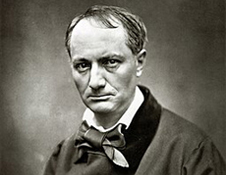
Is mainstream British politics all Right?
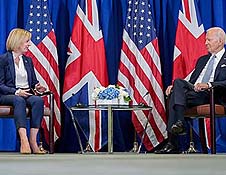
Climate crisis: two reasons to be optimistic?
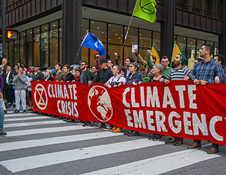
Russia: the West will need to totally seal the border with its neighbour from Hell
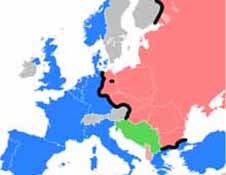
Pomp versus pyres: ways of saying goodbye
